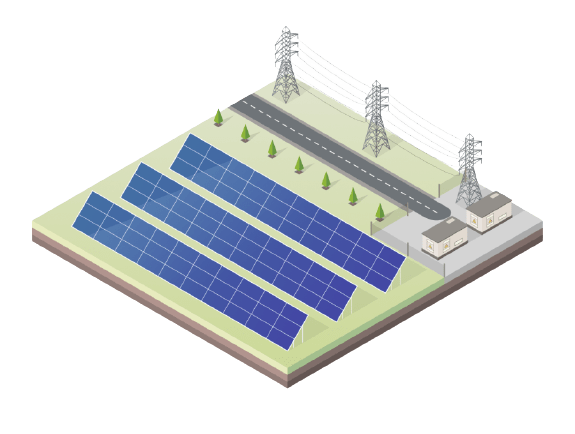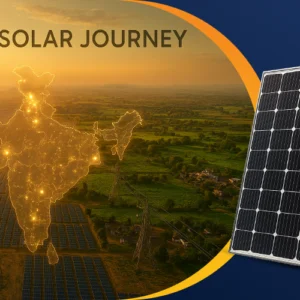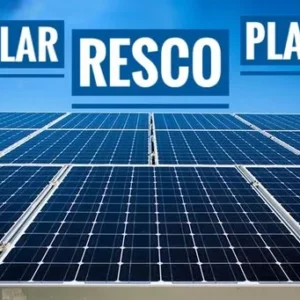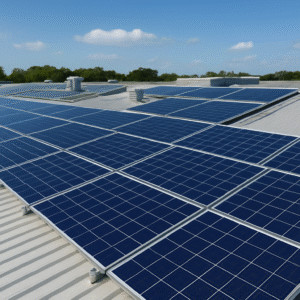
Climatic changes are on the rise now. It has become an alarming cause of concern for all of us. Thankfully, through growing innovations, there are effective ways to live sustainably without affecting the quality of one’s life. One such great discovery is solar energy. As solar energy does not provide electricity in a format that a table lamp could be powered by; solar inverters come into play. Inverters are one of the most important components of a rooftop solar system.
As there are several solar inverters available on the market, it can be a bit intimidating to figure out which inverter setup is right for your home. To help you choose the right one that suits your home and your pocket, below given are the different types of solar inverters:
String Solar Inverters:
These are the most popular standardized solar inverters in the market. It has a centralized inverter, i.e., the inverter is connected to a string of solar panels linked together. They are also the least expensive ones; however, their overall performance gets affected if one of the panels gets damaged.
Hybrid Inverters:
A hybrid inverter combines the features of a traditional solar inverter and battery inverter. It supports a battery storage system that stores energy in a battery. This ensures that you have power even during a blackout. It is expensive but with technological advances and cheaper batteries it has become a cost-competitive option.
Off-grid or Stand-Alone Inverters:
Off-grid inverters are stand-alone power systems that require a battery bank to store the energy produced by the solar panels. It gives you complete independence in your energy usage. However, it has limited battery storage depending on the battery bank you choose to use.
Micro Inverters:
These are small solar inverters attached to singular solar panels. Since each pair of panels and inverter of one does not affect the other’s performance. This is helpful if you have a complex roof layout or there are shading spots. Despite their higher cost, they have gained popularity due to the several advantages they provide.
Power Optimizers:
Power optimizers are the middle ground between string solar inverters and microinverters, both in price as well as functionality. Each of the panels has an optimizer attached to it but instead of producing the energy on-site, it is sent to a central inverter as seen in string inventors. This will be a great choice if your panels are not facing the same way or there is shading present.
Central Inverters:
Central Inverters are much larger in size and can support more strings of solar panels. Whereas string models run directly to the inverter, here strings are connected to a common combiner box that converts DC power to AC. With huge capacities ranging from 100kW to many megawatts, they are best suited for utility-scale systems such as solar farms. They are generally found in power stations where they are linked directly to the electric grid. Moreover, central inverters are less expensive per kilowatt and easy to install and manage.
Battery Based Inverters:
As the name reflects, these include battery chargers and inverters. Being bi-directional in nature they can be grid-interactive or stand-alone grid type or off-grid depending on the UL rating and design. However, the biggest advantage of such inverters is that they not only reduce grid power consumption but also provide continuity in power supply. Also, they are cost-effective, affordable, and easy to maintain.
Solar inverters do more than convert electricity – they also maximize the amount of solar energy the panels produce. Furthermore, they ensure the operation of the solar system is as safe as possible by detecting abnormal electrical currents and utility grid outages as soon as they occur. No doubt, solar inverters serve as the brain of rooftop solar installation. Take your time comparing and deciding what types of solar inverters are right for you. Choose your solar inverter wisely!



